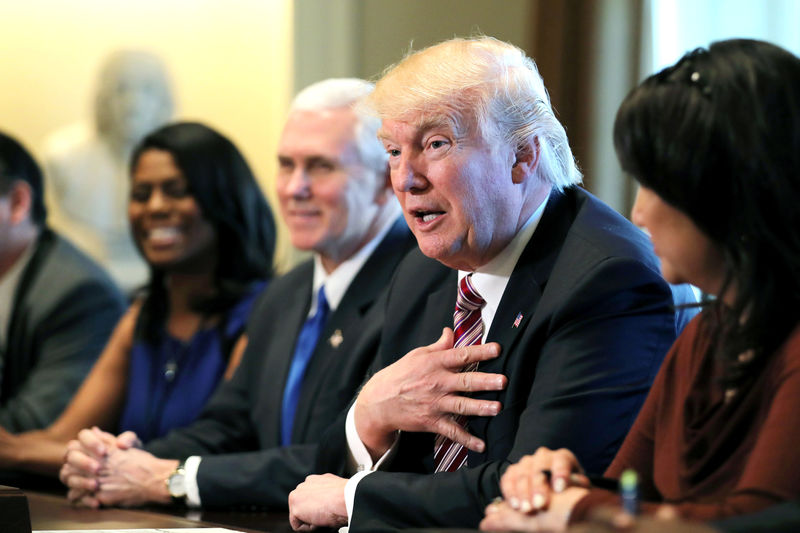By Ayesha Rascoe
WASHINGTON (Reuters) - Leaders of the Congressional Black Caucus met with President Donald Trump on Wednesday about infrastructure and reducing urban crime, calling the sit-down a "positive" first step toward finding common ground.
The lawmakers presented Trump with a 130-page policy proposal titled "We Have a Lot to Lose: Solutions to Advance Black Families in the 21st Century," a reference to Trump's repeated query on the campaign trail asking what did blacks have to lose by supporting him.
"We think it's a positive first start and we're going to continue the dialogue," Representative Karen Bass, a Democrat from California, told reporters after the meeting.
Trump has pledged to improve the lives of African-Americans, who largely voted in favor of his Democratic opponent, Hillary Clinton, in the 2016 presidential election.
Many black leaders have criticized his depiction of urban areas as crime-ridden war zones and his false claims that the first black U.S. president, Barack Obama, may not have been born in the United States. Trump later admitted he believes Obama was U.S. born.
At the start of the meeting, Trump said he was serious about his promise to help African-Americans.
"Every American child has a right to grow up in a safe community, to attend great schools, to graduate with access to high-paying jobs," Trump said during the portion of the meeting open to reporters.
Since coming to office Trump has held a listening session with some of his black supporters and signed an executive order seeking to boost government support for historically black colleges.
Caucus chairman Cedric Richmond, a Democrat from Louisiana, said that while the lawmakers share many of the same goals as Trump, they often disagree with him on how to actually reach those goals.
The lawmakers said the meeting was not "terse," but they did not shy away from addressing contentious issues.

"There were many people in my family, many people in the caucus, and many people in churches that suggested we not take the meeting with President Trump because of the rhetoric," Richmond said. "We expressed that to him, because we're certainly very clear of the emotions of African-Americans around the country."